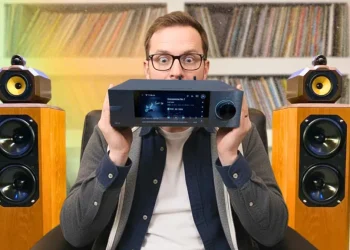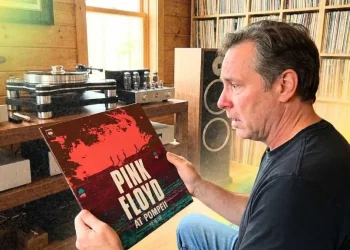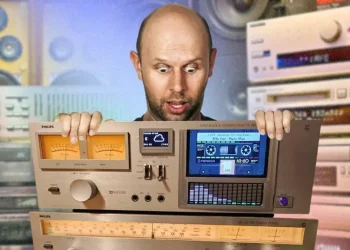Reddit User Praises FLAC Audio—And Instantly Gets Schooled by Audiophiles
Writing Time: August 08, 2025, 15:45 (U.S. Central Time)
A beginner’s excitement over FLAC files triggered a flurry of reactions from audio enthusiasts, leading to a deeper debate about sound quality, blind testing, and the science behind what we actually hear.
A new Reddit user thought he had discovered a life-changing improvement in music quality after trying FLAC files for the first time. Hoping to get more recommendations, he innocently asked where to find FLAC tracks and affordable in-ear monitors for running.
Instead of friendly advice, his post ignited a wave of criticism, testing challenges, and detailed technical debates from audiophiles. While some welcomed him, others quickly turned the conversation into a lesson in listening science and skepticism.
Let’s take a closer look at how a simple audio opinion turned into an online firestorm—and what science says about FLAC versus MP3.
A New Listener Walks Into the Audiophile World
The original Reddit post was harmless enough: “I tried a song with FLAC instead of MP3, and it has changed my life.” The user then asked where to find FLAC downloads without having to rip CDs and for suggestions on cheap IEMs.
Instead of enthusiasm or encouragement, the comment section quickly filled with challenges and critiques. The most repeated phrase?
“Do a blind test.”
Experienced users advised him to convert the FLAC file into a high-quality 320 kbps MP3 and run an ABX blind comparison. If he couldn’t hear the difference, they argued, then FLAC hadn’t really changed anything—it only felt that way.
Some offered links to free ABX tools, while others shared personal stories about believing in FLAC’s superiority, only to be humbled by blind testing.
Mockery, Gear Bragging, and Technical Deep Dives
While a few users welcomed the newcomer with advice, others turned the thread into an audiophile battleground. What started as a discussion on sound quality quickly escalated into sarcastic jokes and heated tech debates.
Commenters weighed in on:
- Sample rates and bit depth
- Digital-to-analog converter (DAC) transparency
- Signal chain distortion
- Resampling artifacts
One user invoked Audio Science Review, a website known for objective audio gear measurements. That sparked further arguments over the site’s testing methods and whether they truly reflect listening experiences.
Some users showcased their own setups, listing DACs, headphone amps, and portable players as if building a résumé. One even claimed they could hear differences between FLAC and WAV formats on a 30-year-old hi-fi system.
When questioned, a user snapped back:
“These are my ears. Don’t tell me what I can’t hear.”
The tone throughout the thread made it clear: enjoying FLAC isn’t controversial. But publicly claiming it changed your life—without technical proof—can be risky in online audio circles.
So, Can You Really Hear the Difference Between FLAC and MP3?
Beyond the online noise, what does actual research say about FLAC versus MP3 audio quality?
According to multiple audio engineering studies, most listeners—even trained ones—struggle to hear the difference between FLAC (lossless) and a 320 kbps MP3 (a high-bitrate lossy format) under normal listening conditions.
Here’s why:
MP3 compression works by removing audio data that’s typically inaudible to the human ear. This includes very quiet background tones, frequencies masked by louder sounds, and more. In many cases, especially with modern mastering, that removal is barely noticeable to casual or even discerning listeners.
In a blind test study conducted by HydrogenAudio, many participants could not reliably identify differences between MP3 and FLAC—even when using reference headphones and quiet listening environments.
Key takeaways from the science:
- File size is the major difference. A 3-minute song in MP3 at 320 kbps might be 7 MB, while its FLAC counterpart could be over 20 MB.
- Mastering matters more. A poorly mastered FLAC will sound worse than a well-mastered MP3. For example, Metallica’s “Death Magnetic” was cited as sounding better in its Guitar Hero MP3 rip than on the official CD due to over-compression.
- Your gear plays a big role. Headphones, speakers, room acoustics, and even your playback device have a greater impact than audio file format in most everyday situations.
When FLAC Makes Sense—and When It Doesn’t
To be clear, FLAC is not a gimmick. It offers real advantages, especially for:
- Archiving and preservation
- Studio mastering workflows
- Lossless format conversion
- Peace of mind for audiophiles
But in practical terms, most music fans will find 320 kbps MP3 more than sufficient—especially when listening on budget gear, streaming on the go, or using IEMs during workouts or commutes.
If you can’t hear a clear difference, you’re not alone—and you’re not “doing it wrong.”
Gatekeeping vs. Education: Where’s the Line?
The Reddit thread ultimately serves as a reminder of how passionate and, at times, unwelcoming audiophile spaces can be. While some users offered useful insights and tools, others responded with sarcasm or superiority.
A newcomer expressing excitement over FLAC audio shouldn’t be discouraged from exploring the hobby. The difference between helping and gatekeeping lies in tone, not just content.
That said, the thread also illustrates why a scientific approach to audio—including blind testing—is so valuable. It helps cut through marketing claims and psychological bias, offering listeners a clearer path to what really matters: enjoying the music.
Final Thoughts: Sound Is Personal, But Science Helps
Whether you’re a seasoned audiophile or just dipping your toes into lossless formats, one truth holds: music is a subjective experience. What sounds incredible to one person might sound identical to another.
FLAC is a great format—but it’s not magic. And blind tests don’t kill the fun; they add perspective. For some, the journey from excitement to understanding can be just as rewarding as the music itself.
This article was rewritten by JournosNews.com based on verified reporting from trusted sources. The content has been independently reviewed, fact-checked, and edited for accuracy, neutrality, tone, and global readability in accordance with Google News and AdSense standards.
All opinions, quotes, or statements from contributors, experts, or sourced organizations do not necessarily reflect the views of JournosNews.com. JournosNews.com maintains full editorial independence from any external funders, sponsors, or organizations.
Stay informed with JournosNews.com — your trusted source for verified global reporting and in-depth analysis. Follow us on Google News, BlueSky, and X for real-time updates.














